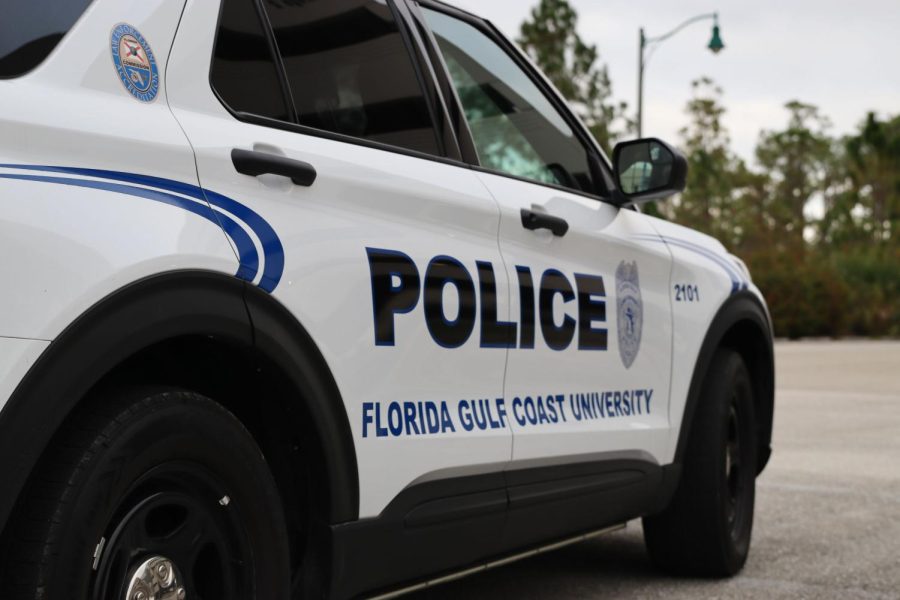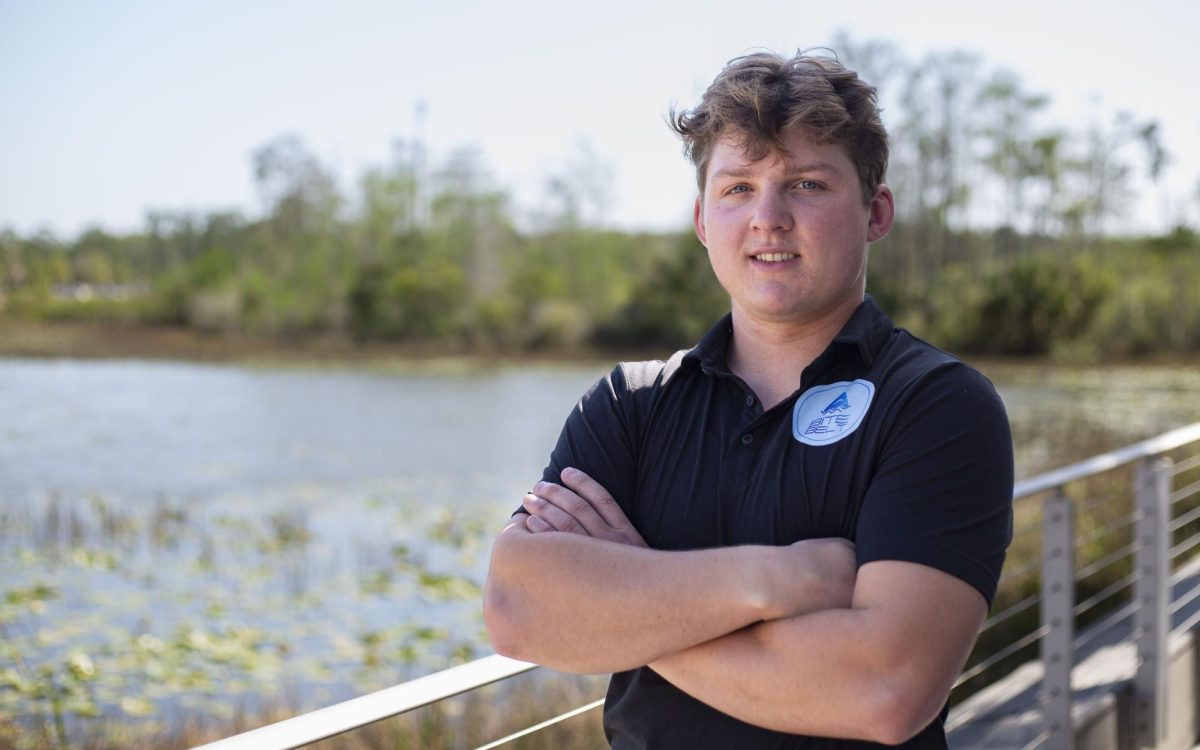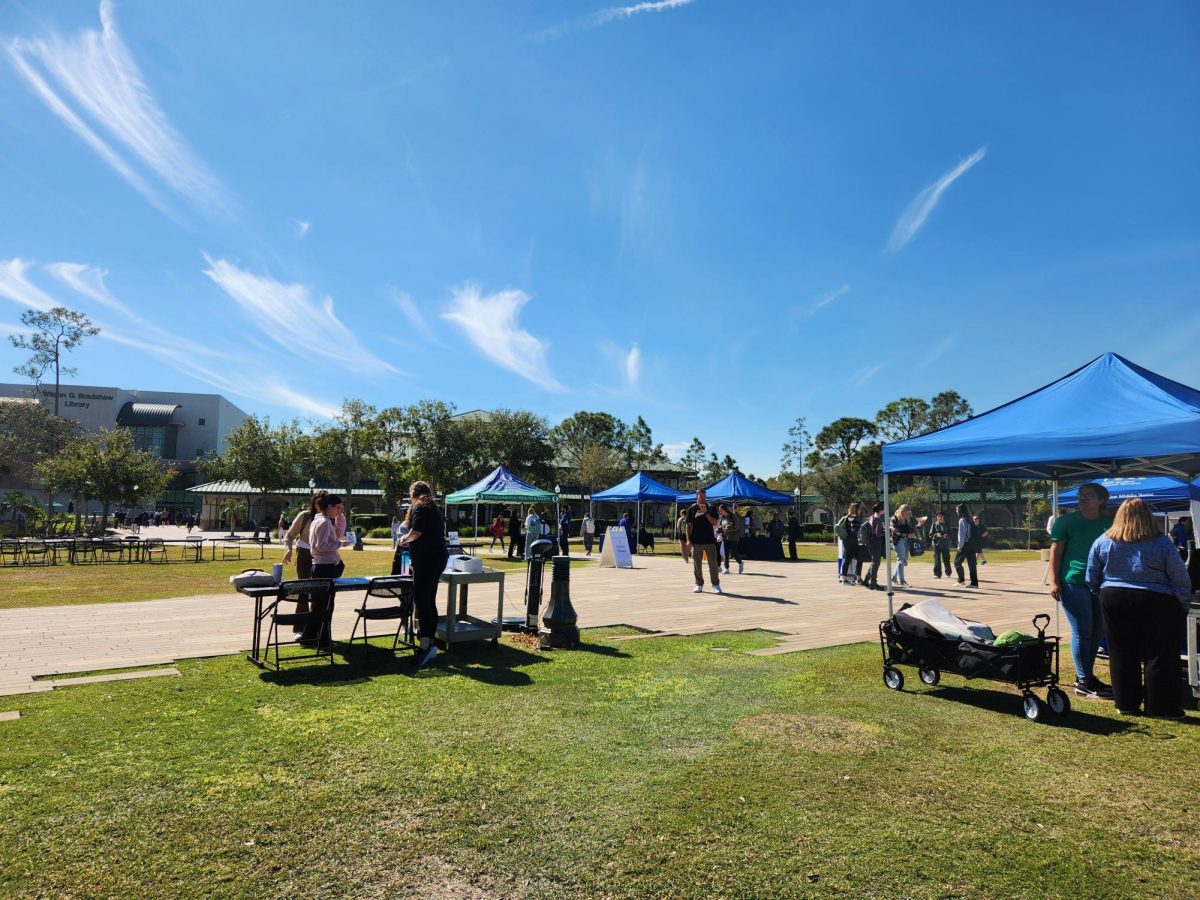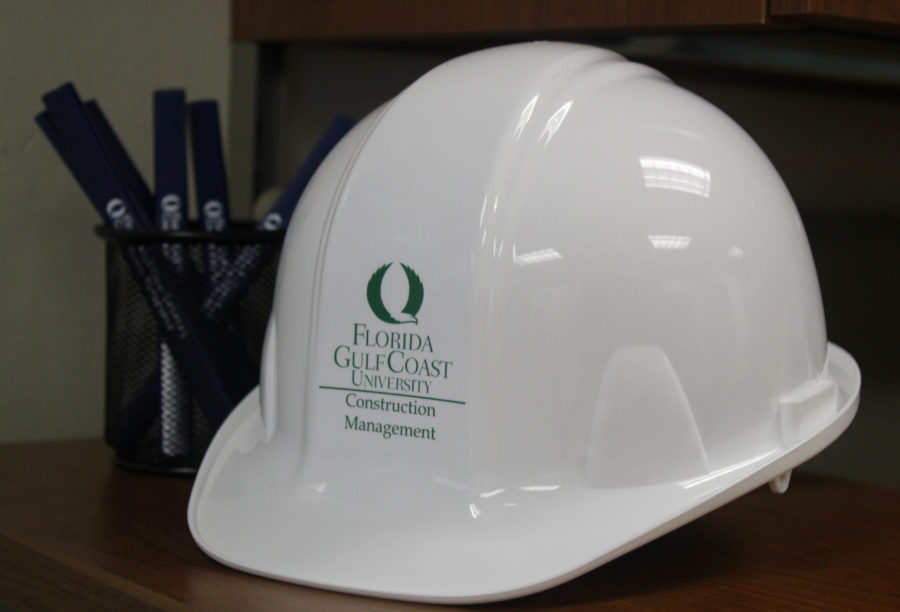By Lauren Miceli
News Desk
Florida Gulf Coast University launched its newest program, a bachelor’s degree in construction management this semester.
The degree program has been in development for about four years, but it wasn’t until July 2019 that it was ratified, which means students could be officially accepted.
“There are no other schools of construction management in this area,” said Dr. Craig Capano, the founding department chair of the construction management program. “We will be the only accredited program in southwest Florida.”
According to Capano, 15 to 20 students were expected to enroll in the new major. Instead, the first class has double that number with 41 students.
“Construction is booming right now,” he said. “There’s just not enough workers or trained people to help fill the need here.”
Companies around the region noticed the demand for a construction management program in SWFL and encouraged FGCU to create one. When students travel to other colleges, like the University of Florida, they tend to relocate and find work in that area.
“We need young people to stay in southern Florida and make their careers here,” said Gary Griffin, the president of B&I Contractors. “FGCU is an important piece of the puzzle that offers more young people the chance to stay here.”
B&I Contractors already contributed $50,000 toward scholarships for students. Another company, the Wright Construction Group, donated laboratory space to the university so students could have hands-on building experience.
“This is a very well-supported program by the industry,” Capano said. “They’d hire our students tomorrow if we had any graduates.”
“As a business that wants to help this community have great success, we want to do everything we can to make FGCU successful,” Griffin said.
Griffin is also the chair of the Construction Industry Advisory Board, which includes around 30 businesses from SWFL that are offering guidance and resources for the newly established program.
Along with encouraging students to grow their careers locally, the program also promotes eco-friendly building methods. Environmental sustainability is one of FGCU’s core values, so the professors have been pushing students to approach construction with a greener mindset.
“Our focus is on building more buildings that are sustainable, solar-powered and eco-friendly,” said Elaina Cooke, a freshman in the construction management program.
She originally was pursuing a degree in civil engineering but switched into construction management because of its higher demand.
“I think the whole goal in construction now is building the most while using the least amount of energy,” Cooke said. “I want to make cool buildings that don’t cause damage.”
According to Griffin, sustainable building has been a growing trend in the construction industry for decades. His company has helped make FGCU and other institutional buildings more eco-friendly.
The most notable would be Seidler Hall, which received the highest certification available by the U.S. Green Building Council. This nonprofit organization developed the Leadership in Energy and Environmental Design, or LEED, rating system.
Buildings are ranked by how sustainable they are, ranging from “certified” to “platinum.” Achieving a platinum ranking is difficult and expensive, but Seidler became platinum certified.
“FGCU’s buildings all incorporate sustainable building practices in them,” Griffin said.
Capano said he believes FGCU’s sustainable approach is one of the things that will make the university a leader among construction schools. Another will be the utilization of technology throughout the program.
Students will have access to a laboratory that allows them to create 3D models of building projects. This technology lets them see a building before it’s even built, and it saves time, effort and resources.
Regarding the future of the degree, Capano doesn’t want the program to become too large.
“It’s not all about the numbers,” he said. “It’s about keeping the quality.”
Graduates should leave FGCU with a well-rounded understanding of how to manage a construction project. Because of this, their classes include a variety of subjects, such as engineering, business, law and finance.
“You always need construction. That’s one thing I didn’t even know,” Cooke said. “Even to take the class for your major, you’re building in something that was built by a construction company.”





































Bobby Joe • Sep 28, 2019 at 8:55 pm
Unfortunately, all construction is destructive to SWFL’s ecosystems. All that’s left to develop is what needs to stay environmentally sensitive conservation land. More concrete = more runoff. As long as our county commissioners continue to get their pockets lined by the developers, shady parcel swaps and land use changes will allow these students to graduate and destroy SWFL and what makes FGCU so special.